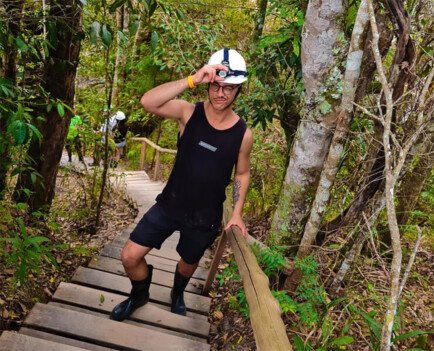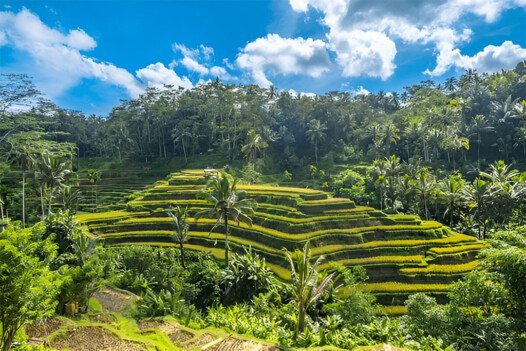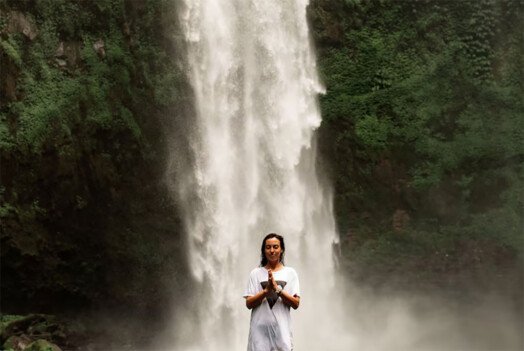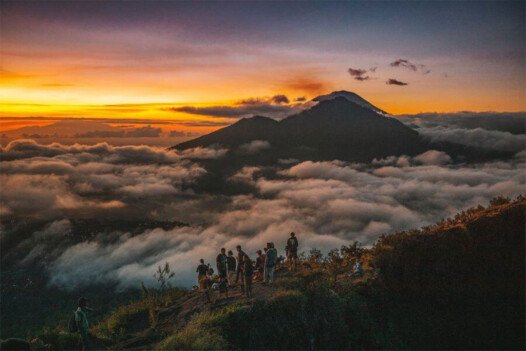Bali, often celebrated for its stunning beaches and vibrant culture, offers another delightful experience for visitors: its rich coffee heritage. Nestled in the island’s lush highlands, Bali’s coffee plantations provide an immersive journey into the world of coffee cultivation and production.
From the renowned Kopi Luwak to the unique flavors of Kintamani coffee, these plantations offer more than just a caffeine fix—they provide a deep dive into Bali’s agricultural traditions, sustainable practices, and the intricate process behind every cup.
1. The Rich History of Coffee in Bali
Coffee was introduced to Bali during the Dutch colonial era in the 18th century. The fertile volcanic soil and favorable climate of the island’s highlands, particularly around Mount Batur and Mount Agung, proved ideal for cultivating coffee. Over time, Balinese farmers adopted traditional farming systems like Subak Abian, a community-based irrigation system rooted in the Hindu philosophy of Tri Hita Karana, emphasizing harmony between humans, nature, and the divine .
2. Exploring the Coffee Plantations
Visiting a coffee plantation in Bali is an educational and sensory journey. Visitors can witness firsthand the entire coffee production process—from planting and harvesting to drying and roasting. Many plantations offer guided tours where you can:
- Walk through coffee orchards: Learn about different coffee varieties and cultivation methods.
- Observe traditional processing techniques: See how beans are washed, dried, and roasted.
- Participate in tastings: Sample a range of coffees and teas, including the famed Kopi Luwak.
3. The Allure of Kopi Luwak
Kopi Luwak, or civet coffee, is one of the most unique and expensive coffees globally. The process involves civet cats consuming ripe coffee cherries, which are then excreted, collected, and processed. This method imparts distinctive flavors to the beans, making it a must-try for coffee enthusiasts. Several plantations in Bali offer insights into this process, allowing visitors to observe civets in their natural habitat and understand the ethical considerations surrounding Kopi Luwak production.
4. Sustainable and Organic Practices
Many Balinese coffee plantations emphasize sustainability and organic farming practices. By avoiding synthetic pesticides and fertilizers, these plantations not only produce high-quality coffee but also contribute to the preservation of Bali’s environment. The Subak Abian system, which integrates agricultural practices with spiritual beliefs, plays a crucial role in maintaining ecological balance and promoting sustainable farming.
5. A Cultural Immersion
A visit to a coffee plantation offers more than just a glimpse into agriculture; it’s an opportunity to immerse yourself in Balinese culture. Many plantations are located near traditional villages where visitors can experience local customs, participate in ceremonies, and enjoy authentic Balinese hospitality. This cultural exchange enriches the travel experience, providing a deeper understanding of Bali’s heritage.
6. Scenic Beauty and Photography Opportunities
Bali’s coffee plantations are often set against breathtaking backdrops of terraced hillsides, misty mountains, and verdant valleys. The serene landscapes provide perfect settings for photography, allowing visitors to capture the island’s natural beauty while enjoying a cup of freshly brewed coffee.
7. Supporting Local Communities
By visiting these plantations, tourists contribute directly to the livelihoods of local farmers and communities. Purchasing coffee and related products helps sustain traditional farming practices and supports the local economy. Many plantations also engage in community development initiatives, further enhancing the positive impact of agritourism.
8. Planning Your Visit
To make the most of your visit to Bali’s coffee plantations:
- Choose the right season: The best time to visit is during the dry season (April to October) when the weather is conducive for plantation tours.
- Book in advance: While many plantations accept walk-in visitors, booking a tour ensures a guided and informative experience.
- Wear comfortable attire: Plantation tours may involve walking on uneven terrain, so comfortable shoes are recommended.
- Respect local customs: Be mindful of cultural practices and traditions when visiting villages and participating in ceremonies.
9. Top Coffee Plantations to Visit
Here are some notable coffee plantations in Bali:
- Segara Windhu Coffee Plantation: Located in Kintamani, this plantation offers comprehensive tours and tastings, showcasing traditional coffee processing methods.
- Buana Amertha Sari Agro-Tourism: Situated in Tabanan, this plantation provides an immersive experience into the coffee-making process amidst scenic landscapes.
- Munduk Organic Coffee Plantation: Found in the northern region, Munduk focuses on organic farming and offers educational tours about sustainable coffee production.
- OKA Agriculture Bali: Near Ubud, this plantation combines coffee cultivation with stunning canyon views, providing a unique agritourism experience.
10. Conclusion
Visiting Bali’s coffee plantations offers a unique blend of nature, culture, and gastronomy. It’s an opportunity to appreciate the intricate journey of coffee from bean to cup, understand the sustainable practices that protect Bali’s environment, and immerse yourself in the island’s rich traditions. Whether you’re a coffee aficionado or a curious traveler, a trip to these plantations promises an enriching experience that goes beyond the ordinary.









